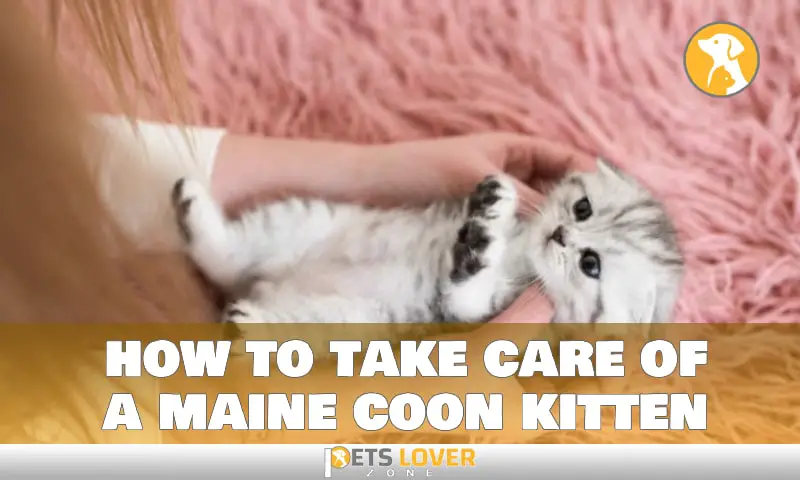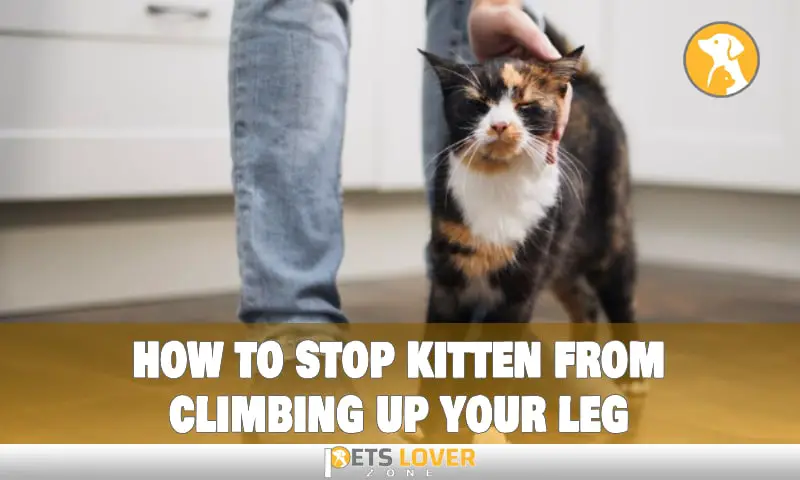Your kitten may try to nurse on your neck because it sees you as a mother figure. Kittens nurse for comfort, security, and nutrition and may resort to sucking behaviors on various objects when they feel the need to nurse.
Welcoming a new kitten into your home can be an exciting and rewarding experience. However, it can also be challenging, especially if you have never cared for a kitten before. One odd behavior that some kittens may exhibit is nursing on your neck or other parts of your body.
This behavior may seem cute at first, but it can become problematic if your kitten begins to scratch or bite you in the process. Understanding why your kitten is trying to nurse on your neck and how to redirect this behavior can help you create a happier and healthier relationship with your furry friend. In this article, we’ll explore the reasons why kittens try to nurse on your neck and what you can do to prevent it.
Understanding Neck Craving In Kittens
Introducing The Concept Of Neck Nurture
As a kitten owner, you might notice your little furball trying to suckle on your neck. This is a common behavior in kittens known as neck nurture, and it happens when they try to find comfort from their mothers like they used to when they were nursing.
We’ll be delving deeper into this behavior, why kittens engage in it, how it differs from other forms of affection, and its benefits.
Common Signs Of Kittens Wanting Neck Nurture
It’s important to understand the signs that your kitten is seeking neck nurture so that you can address their needs appropriately. Here are some common indicators:
- Kneading with their paws on your neck or chest
- Nuzzling your neck
- Licking or sucking on your hair or skin
- Purring contentedly
If you notice these signs, then your kitten is looking for comfort and security.
How Neck Nurture Differs From Other Forms Of Kitten Affection
Neck nurture is different compared to other forms of kitten affection, such as cuddling and playing. Here’s how they differ:
- Neck nurturing is usually associated with nursing behaviors, while cuddling and playing are more social and interactive.
- Neck nurturing is a solitary activity, while playtime and cuddling typically involve other cats or humans.
- Neck nurture tends to happen to humans who have a special bond with the kitten while cuddling and playing are fun activities for kittens with everyone.
Benefits Of Neck Nurture For Kittens
It’s important to fulfill your kitten’s nurturing needs, as this behavior has some benefits, such as:
- Helps kittens relax and feel secure
- Facilitates bonding between you and your kitten
- Helps establish a sense of trust and comfort between you and your kitten
- Relieves anxiety and stress
Neck nurturing is a natural behavior that kittens engage in to soothe themselves. If your kitten exhibits these behaviors towards you, it’s a sign of trust and comfort, and you can easily fulfill their needs by allowing them to suckle, knead, or cuddle on your neck.
The Science Behind Your Kitten’S Neck Craving
Examining The Science Behind Neck Nurture
Kittens crave neck nurture due to the biological instincts they inherited from their ancestors. When they were still in the wild, they would knead their mothers’ bellies to stimulate milk production. Neck nurturing has a similar effect on kittens, as it gives them a feeling of comfort and security.
The Relationship Between Neck Nurture And Oxytocin
Oxytocin is a hormone associated with bonding and social interaction, and it is released in a kitten’s brain as they enjoy neck nurture. This hormone has a calming effect on the kitten, reducing stress levels and increasing the feeling of relaxation.
Some benefits of oxytocin are:
- Promotes trust and a sense of security
- Reduces the feeling of anxiety and stress
- Provides a sense of pleasure and joy, encouraging a positive attitude
How Neck Nurture Benefits A Kitten’S Physical And Emotional Health
Neck nurturing has a lot of benefits for kittens of all ages. Let’s examine the advantages of neck nurturing.
Physical health benefits:
- Promotes healthy digestion
- Helps develop motor skills
- Strengthens jaw and teeth
- Regulates body temperature
Emotional health benefits:
- Provides bonding opportunities
- Encourages a feeling of security
- Promotes relaxation
- Reduces anxiety and stress in cats
Common Triggers For A Kitten’S Neck Craving
There are numerous reasons why a kitten might crave neck care. Some of the most common triggers are:
- Separation from the mother
- Weaning from nursing
- Stress or anxiety
- Lack of bonding opportunities
- Boredom or lack of stimulation
Understanding the science behind your kitten’s neck craving can help you provide the best care for your furry friend. By giving your kitten the attention and affection they crave, you can promote healthy physical and emotional development, leading to a happy and healthy cat.
How To Provide Your Kitten With Neck Nurture Safely
Why Does My Kitten Try To Nurse On My Neck
Neck nurtures, or neck cuddles, are a common way for felines to show affection towards their owners. Kittens, especially, have a strong instinct to nurse on their mother’s nipples for nutrients and comfort. If you’ve noticed your furry friend trying to nurse on your neck, it might be because they’re trying to satisfy this natural need for comfort.
While it might seem cute, excessive or roughneck cuddles can be uncomfortable and sometimes even painful. So, how can you provide your kitten with neck care safely without risking any harm or discomfort?
Best Practices For Providing Neck Nurture To Your Kitten
Here are some best practices that can help you provide safe and comfortable neck care to your furry little friend:
- Always ensure that your kitten is relaxed and calm before attempting any kind of neck cuddle or nurture.
- Take baby steps and introduce neck nurture sessions gradually over time, to avoid overwhelming your kitten.
- Avoid any sudden movements or loud sounds during the session that can cause your kitten to become anxious or frightened.
- Use plenty of treats and positive reinforcement during your neck cuddle sessions, to encourage good behavior and positive associations.
Ensuring Your Kitten Is Comfortable During Neck Nurture Sessions
Ensuring your kitten is comfortable during the neck cuddle session is vital to avoid any discomfort or accidental injuries. Here are a few things to keep in mind to ensure your kitten’s comfort:
- Pay attention to your kitten’s body language and avoid neck cuddles if they seem agitated or anxious.
- Always support your kitten’s neck and head with your hand during the cuddle session.
- Avoid applying excessive pressure or squeezing your kitten’s neck too tightly, which can cause pain or discomfort.
- Keep a watchful eye on your kitten and end the session if they seem unhappy or uncomfortable.
Avoiding Over-Stimulation Or Aggression During Neck Nurture Sessions
Kittens have a short attention span and might quickly become overstimulated or aggressive during neck cuddle sessions. Here are a few things you can do to avoid over-stimulation or aggression:
- Avoid long neck cuddle sessions and stick to short sessions of a few minutes at a time.
- Pay attention to your kitten’s body language and end the session if they seem agitated or overstimulated.
- Avoid any rough play or teasing during the session that can encourage aggressive behavior.
Addressing Potential Concerns Or Risks Associated With Neck Nurture
While neck cuddles are generally safe and harmless, there are a few potential risks associated with them, such as accidental injuries or choking.
- Avoid neck cuddles if your kitten is eating, drinking, or has any objects in its mouth that can cause choking.
- Never leave your kitten unattended during a neck cuddle session, and avoid any distractions that can cause you to lose focus.
- If your kitten shows any signs of discomfort or pain during the session, stop immediately and seek veterinary advice if required.
Neck cuddles are a fantastic way to bond with your kitten, but it’s essential to remember that safety always comes first. Follow these best practices, and you can enjoy a safe and comfortable neck cuddle session with your furry little friend.
The Importance Of Bonding In Kitten Development
Cats, also known as the masters of affection, can be very persistent when it comes to their needs and desires. Have you ever found an adorable kitten trying to nurse on your neck? You may be wondering why they do this.
In this blog post, we will be discussing the importance of bonding in kitten development and how neck nurture plays a vital role in fostering kitten-owner bonding.
The Role Of Neck Nurture In Fostering Kitten-Owner Bonding
Neck nurturing, also known as neck kneading, is a behavior exhibited by cats, including kittens. It involves the kitten kneading on a soft surface while purring and trying to suckle. A kitten that displays neck nurturing behavior around its owner is showing trust, comfort, and a desire to bond.
This behavior is carried over from nursing on their mother’s belly, and when your kitten kneads on your neck, it stimulates that attachment mechanism.
Bonding with your kitten through neck nurture creates a sense of calmness and relaxation for both of you. It is an excellent way of building trust, and in time, your kitten will start to feel secure and safe around you.
The Impact Of Positive Social Experiences On Kitten Behavior
Just like humans, kittens’ early years are integral to shaping their behavior and personality. A kitten’s interaction with humans and other household pets plays a significant role in its socialization process. By providing a positive and nurturing environment, you can help your kitten develop into a well-behaved, confident, and happy cat.
Positive social experiences also include playtime, grooming, and cuddling. As a kitten parent, you have to spend time and bond with your furry little one. Playing with your kitten is an essential way of teaching them appropriate behavior. Additionally, grooming and cuddling sessions are the perfect way to show love and affection while reinforcing the bond between you and your kitten.
How Bonding With Your Kitten Through Neck Nurture Can Benefit Both Of You
The act of neck kneading by your kitten may seem sweet and silly, but it has numerous benefits for both you and your furry friend. By engaging in neck nurturing with your kitten, you can:
- Build trust with your kitten and strengthen your bond
- Create a warm, secure environment that will help your kitten feel loved and safe
- Promote relaxation and stress relief for both you and your kitten
- Experience the joys of being a proud kitten parent as your kitten displays trust and affection towards you.
The Long-Term Effects Of Bonding With Your Kitten
Bonding with your kitten is a long-term process. When done correctly, it has numerous benefits for both you and your furry friend. By creating a secure, loving environment, you are setting the foundation for your kitten’s socialization, and mental, and emotional wellness for years to come.
The long-term benefits of bonding with your kitten include:
- Strong and positive behavior towards humans and other household pets
- A well-behaved, confident, and happy cat
- An unbreakable bond between you and your furry friend that can last a lifetime.
Bonding with your kitten is an essential part of their development. By engaging in neck nurture, you are creating a secure and loving environment that will help your kitten feel safe, loved, and secure. Investing time in your kitten’s socialization, bonding, and development is an investment in their future and your happiness as a pet parent.
People Also Like: Crucial knowing When Does Kitten’s Umbilical Cord Fall off
FAQs
Why Does My Kitten Try To Nurse On My Neck?
Your kitten may be seeking comfort and warmth as it associates your neck with the feeling of nursing from its mother.
Is It Normal For My Kitten To Suckle On Me?
Yes, it is common for kittens to suckle on their owners as they seek comfort, especially if they were weaned too early.
How Can I Discourage My Kitten From Suckling On Me?
You can discourage your kitten from suckling on you by redirecting its attention to a toy or providing it with a stuffed animal to snuggle with.
Could Excessive Suckling Indicate A Health Issue?
Even though excessive sucking or behavioral changes may be indications of underlying health issues, a veterinarian should be consulted since sucking is typically not harmful.
Conclusion
Now you know that kittens trying to nurse on your neck is a normal behavior that should not cause concern. It is instinctive for kittens to suck and knead to obtain the milk they need to survive. However, if this behavior persists into adulthood, it may indicate an underlying issue.
As a responsible pet owner, you need to ensure that you provide your kitten with adequate nutrition and socialization. If you are struggling with inappropriate nursing behaviors, redirect your kitten to an appropriate nursing object, and always reward good behavior.
Remember, attention, affection, and care are essential for your kitten’s physical and emotional development. Always keep an eye on your kitten’s behavior and seek professional advice if you notice any unusual signs. With a little patience, understanding, and love, you can raise a happy and healthy kitten.






